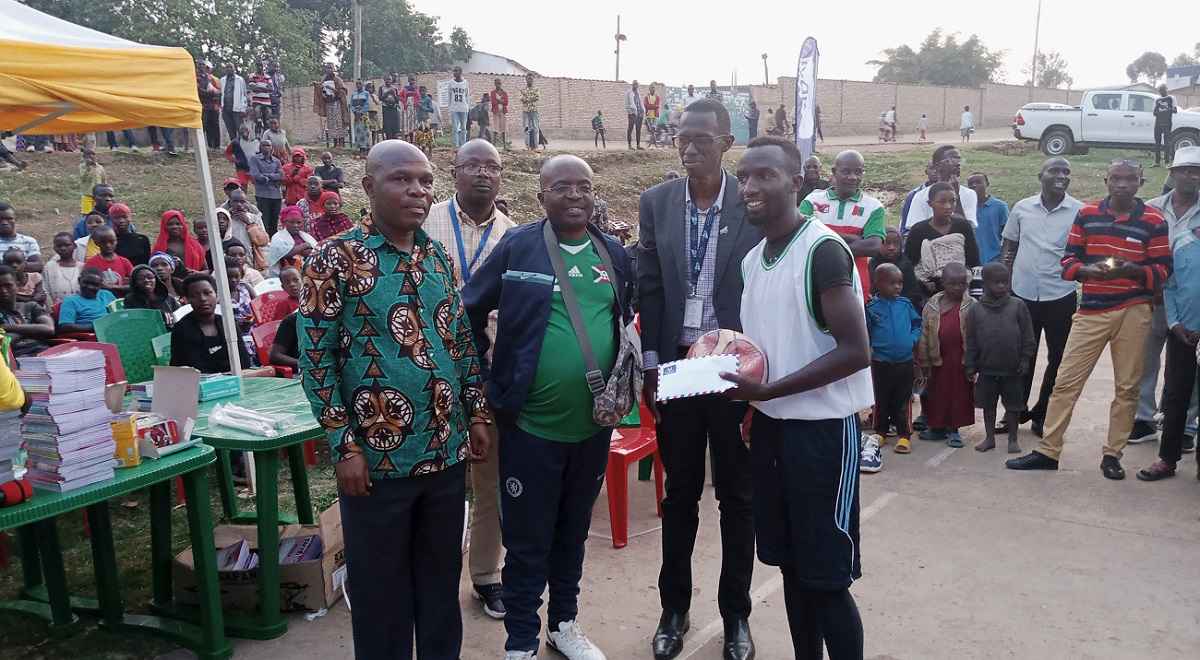Service Yezu Mwiza, as part of the implementation of the project "Reaching an Aids Free Generation (RAFG-Activity is organizing since May 23, 2022, group sessions for its beneficiaries, with the aim of strengthening models of differentiated care.
Since 2020, Burundi has been committed to implementing new strategies for the care of people living with HIV through the achievement of 95-95-95 global targets to eliminate the HIV/AIDS pandemic by 2030. Among these strategies is the provision of differentiated care.
According to the World Health Organization (WHO), differentiated care is a patient-centered approach that aims to simplify and tailor the cascade of HIV services to accommodate the preferences and expectations of different groups of PLHIV, while reducing unnecessary burdens on the health system.
As Mrs. Scholastique, a SYM beneficiary, testifies, "With the differentiated care, we have enough time for ourselves, which allows us to go about our daily activities without interruption, not to mention the reduction in the cost of transportation each month. It is really very advantageous for all of us, given that the majority of those who are taken care of at Service Yezu Mwiza, have a very low standard of living".
One of the beneficiaries speaking at the focus group meeting
Differentiated care models contribute to reducing overcrowding in health facilities, decrease the frequency of visits by PLHIV to health facilities, facilitate easy access to antiretroviral treatment (ARVs), and address problems associated with stigma and discrimination faced by PLHIV when accessing HIV services.
“The offer of differentiated care has already been done at Service Yezu Mwiza for some time, here we can mention the multi-month dispensation of drugs, the community distribution points for ARVs (PODI) as well as the distribution of drugs at home for bedridden patients . We are in the process of organizing these discussion group sessions, to reinforce the differentiated care models with our beneficiaries and thus provide guidance to PLHIV, to help them adhere to the different differentiated care models that will allow them to access easily to ARV treatment and to have good compliance. Retention in care and compliance with treatment are necessary to achieve a state of suppressed viral load ", indicates Doctor Emmanuel IRAMBONA, head of the RAFG Activity Project at SYM.
It should be noted that the differentiated care models as recommended by the National AIDS Control Program (PNLS) are: the spacing of ARV supply appointments through multi-monthly prescriptions and dispensations (drugs for 3 to 6 months), PODIs, home-based drug distribution as well as treatment adherence clubs for youth and adolescents.
SYM: Distribution of school kits to members of associations of people affected by leprosy

SYM: Sensitization on pre and post-exposure to HIV in Kayanza and Ngozi
SYM: Managing co-morbidities among people living with HIV
SYM: Quarterly meeting of community relays
Distribution of work tools to young volunteers and to the pillars of the SRH community solutions project called